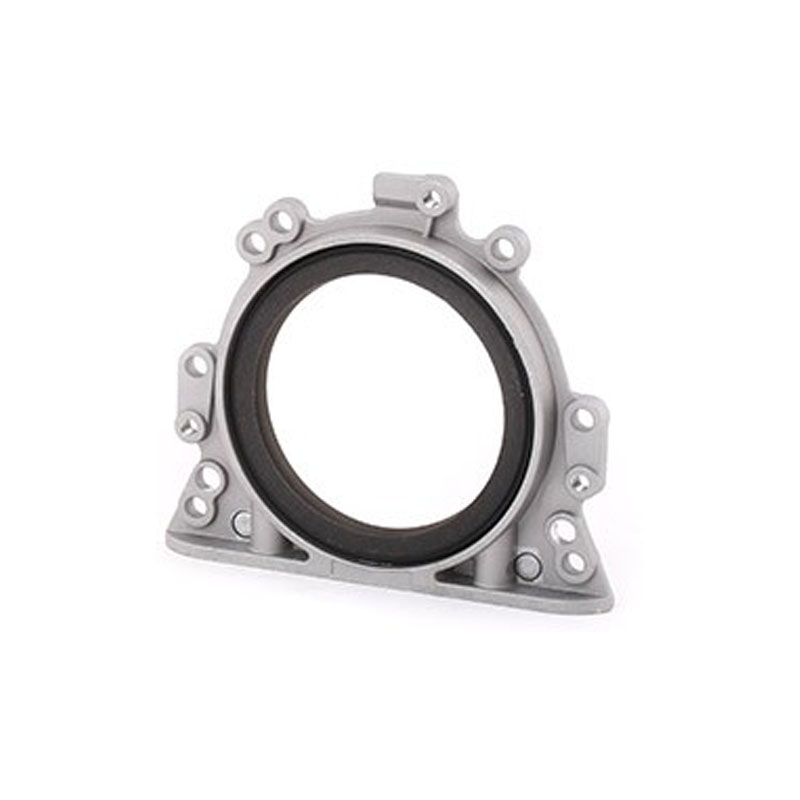filter housing gasket
Understanding Filter Housing Gaskets Importance, Materials, and Applications
In the intricate world of filtration systems, filter housing gaskets play a vital role in ensuring efficient operation and longevity. These unassuming components, situated between the filter housing and the filter element, are crucial for maintaining the integrity of the filtering process. Understanding the importance of gaskets, the materials from which they are made, and their various applications can help in selecting the right gasket for specific filtering needs.
Importance of Filter Housing Gaskets
The primary function of a filter housing gasket is to provide a durable, leak-proof seal between the filter housing and other components. This seal is essential for preventing contaminants or fluids from bypassing the filter, which could compromise the quality of the filtration process. A high-quality gasket ensures that the fluid being filtered passes only through the filter media, capturing unwanted particles, debris, and contaminants efficiently.
Additionally, gaskets contribute to the safety and reliability of a filtration system. A compromised seal can lead to leaks, resulting in process failures, equipment damage, or hazardous spills. Depending on the application, failure of the gasket can also lead to contamination of the filtered product, which is particularly critical in industries such as pharmaceuticals, food and beverage, and biotechnology.
Materials Used for Filter Housing Gaskets
The material used for gaskets varies widely, and the selection is typically dictated by the application’s specific requirements, including temperature ranges, pressure conditions, and the nature of the fluids being filtered. Here are some common materials utilized in filter housing gaskets
1. Rubber Natural and synthetic rubbers, such as neoprene and EPDM (ethylene propylene diene monomer), are popular choices due to their excellent flexibility, resilience, and chemical resistance. They are suitable for a variety of applications, particularly in environments that do not exceed moderate temperatures.
2. Silicone Known for its high-temperature tolerance and flexibility, silicone gaskets are used in applications where high temperatures and exposure to harsh chemicals are concerns. Their ability to maintain a seal over a wide temperature range makes them ideal for automotive and industrial applications.
3. PTFE (Teflon) PTFE gaskets are renowned for their exceptional chemical resistance and are used extensively in highly corrosive applications. Their non-stick properties also make them an excellent choice for applications requiring easy cleaning and maintenance.
filter housing gasket

4. Metal For applications involving extreme pressure and temperature, metal gaskets such as those made from stainless steel or copper may be utilized. These gaskets provide unparalleled strength and durability, ensuring a secure seal even under harsh conditions.
Applications of Filter Housing Gaskets
Filter housing gaskets find applications across numerous industries, each with unique challenges and requirements. Here are a few notable examples
- Water and Wastewater Treatment Gaskets are essential in the filtration systems used for purifying drinking water and managing wastewater, ensuring that harmful contaminants are effectively removed without leaks.
- Food and Beverage Industry Given the stringent health regulations, gaskets must be food-grade and capable of withstanding cleaning and sterilization processes while maintaining a tight seal.
- Pharmaceuticals and Biotechnology In these industries, gaskets must ensure that no contamination occurs during the filtration process, safeguarding product integrity and compliance with regulatory standards.
- Automotive Filter housing gaskets are crucial in oil and fuel filtration systems in vehicles, ensuring proper engine function and preventing leaks that could lead to performance issues or environmental hazards.
Conclusion
In summary, filter housing gaskets may be small in size, but their impact on the functionality and reliability of filtration systems is substantial. Understanding the various materials and applications of these gaskets allows manufacturers and technicians to make informed decisions, ensuring optimal performance in a variety of industrial settings. As technology advances and industries evolve, the development of innovative gasket materials and designs will continue to enhance the efficiency and effectiveness of filtration systems.
-
Understanding the Front Main Engine Seal: Purpose, Maintenance, and Installation
News Jul.29,2025
-
Understanding O-Rings and Seal Rings: Types, Applications, and Custom Solutions
News Jul.29,2025
-
Understanding Crankshaft Oil Seals: Rear Seals, Pulley Seals, and Their Role in Engine Integrity
News Jul.29,2025
-
The Importance of Front and Rear Crankshaft Seals in Engine Performance and Oil Management
News Jul.29,2025
-
Crank Oil Seals: Functions, Types, and Cost Considerations in Engine Maintenance
News Jul.29,2025
-
A Comprehensive Guide to O-Rings and Seals: Types, Materials, and Global Applications
News Jul.29,2025
-
Mastering Diesel and Performance Engine Maintenance: A Guide to Critical Oil Gaskets
News Jul.28,2025
Products categories















